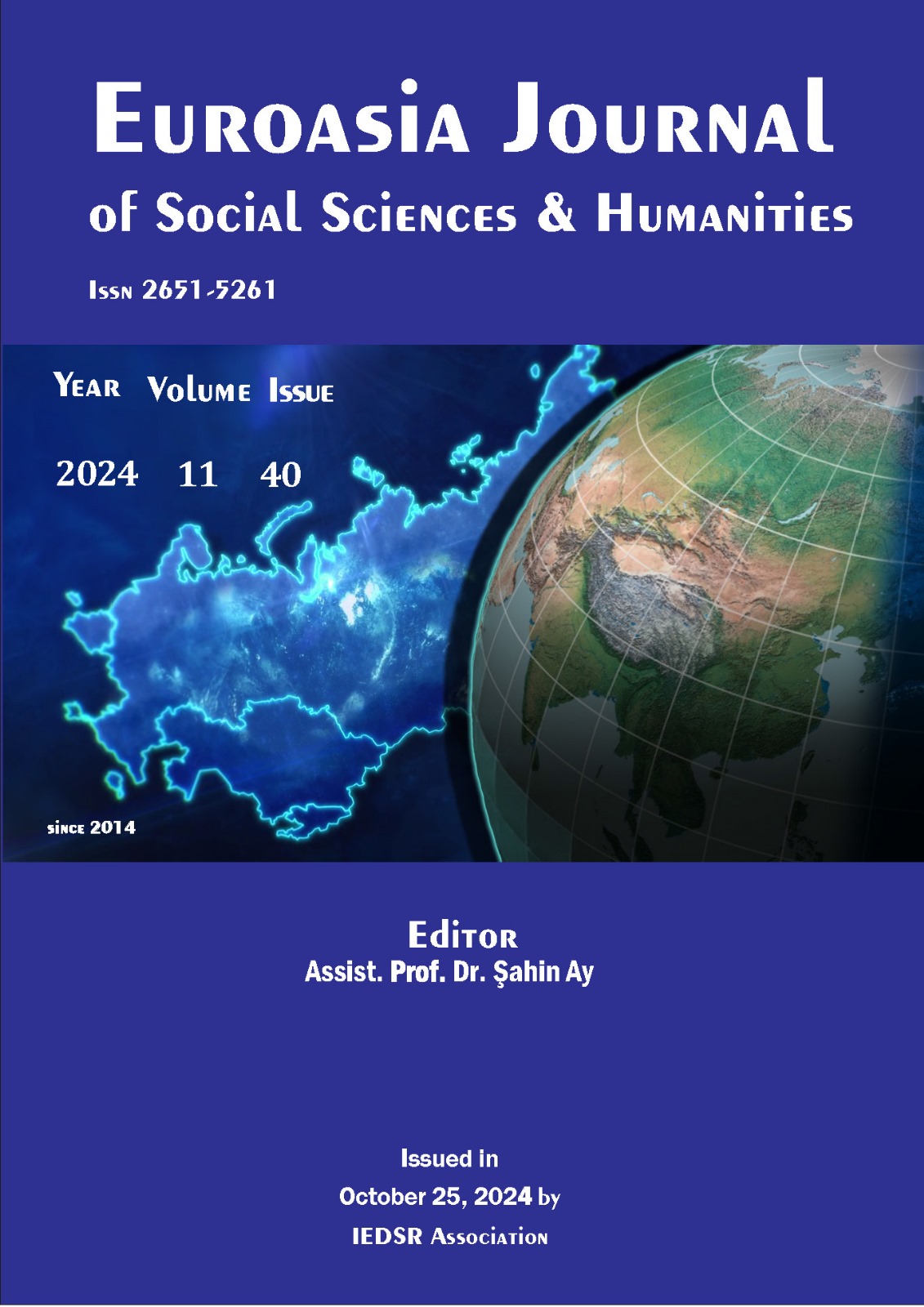Evaluation of the Concept of Ethics in Terms of Accounting Profession and Professional Members
DOI:
https://doi.org/10.5281/zenodo.14182384Keywords:
Ethics, Accounting Education, Ethics in Accounting EducationAbstract
Ethics is a form of behavior that distinguishes between right and wrong and prefers what is right. On the other hand, moral behavior is a form of behavior that complies with specific rules perceived as good and correct in society.
Ethics in accounting can be expressed as a set of rules that must be followed to present reliable information, considering the current value judgments of society and legal transactions. While providing all these services, professional accountants must be responsible, proven reliable, accurate, and impartial. In this study, the concept of ethics was examined from the perspective of the accounting profession and accounting professionals.
Downloads
References
Akdoğan, H. (2005). Muhasebe Meslek Etiğinde Teleolojik ve Deontolojik Yaklaşımların Karşılaştırılmaları. Süleyman Demirel Üniversitesi İktisadi ve İdari Bilimler Fakültesi Dergisi, 10(1), 295-300.
Alagöz, A., Yılmaz, B. and Güler, E. (2007). Muhasebe Uygulamalarında Meslek Etiği Anlayışı ve Bir Araştırma. 2. Ulusal Uygulamalı Etik Kongresi Bildiriler Kitabı, 18-20 Ekim 2006, Dumat Ofset, Ankara.
Civan, M., and Yıldız, F. (2003). Globalleşme Sürecinden Muhasebe Meslek Eğitiminin Etkilenmesi, 6. Muhasebe Denetimi Sempozyumu, 16-19 Nisan 2003, İstanbul.
Daştan, A. Bellikli, U. and Bayraktar, Y. (2015). Muhasebe Eğitiminde Etik İkilem ve Etik Karar Alma Konularına Yönelik KTÜ-İİBF Öğrencileri Üzerine Bir Araştırma. Ekonomik ve Sosyal Araştırmalar Dergisi, 11 (1), 75-92.
Fouka, G., and Mantzorou, M. (2011). What Are the Major Ethical Issues in Conducting Research? Is There a Conflict Between the Research Ethics and the Nature of Nursing?. Health Science Journal, 5(1), 3-14.
Jaijairam, P. (2017). Ethics in Accounting. Journal of finance and accountancy, (23), 1-13.
Kutlu, H. A. (2008). Muhasebe Meslek Mensupları ve Çalışanlarının Etik İkilemleri: Kars ve Erzurum İllerinde Bir Araştırma. Ankara Üniversitesi SBF Dergisi, 63(02), 143-170.
Kaygusuz, S. Y., Aslan, Ü. and Kepçe, N. (2012). Genel Muhasebe 1, Anadolu Üniversitesi Web-Ofset Tesisleri, Eskişehir.
Lazol, İ. (2011). Genel Muhasebe, Ekin Yayınevi, Bursa.
Mintz, S. E. (1995). Virtue Ethics And Accounting Education, Issues In Accounting Education, 10(2).
Müslümov, A. and Aras, G. (2002). Türkiye’de Muhasebe Ve Finansal Yönetim Uygulamalarında Etik Davranışlarını Etkileyen Faktörlerin Analizi. XXI. Türkiye Muhasebe Eğitimi Sempozyumu, Bodrum.
Reiter, S. (1997). The Ethics of Care And New Paradigms for Accounting Practice, Accounting, Auditing, and Accountability Journal, 10(3).
Toraman, C. and Akcan, A. (2003). Muhasebe Denetiminde Etik Teori, Muhasebe ve Denetime Bakış, 3(8), 59-70.
Tugay, O. and Ömürbek, V. (2014). Meslek Yüksekokullarında Verilen Muhasebe Derslerinin Uygulamada Kullanılma Düzeyi ve Yeterliliği Üzerine Bir Araştırma. Niğde Üniversitesi İktisadi ve İdari Bilimler Fakültesi Dergisi, 7(3), 53-74.
Tunçez, H. A., Ateş, A. and Şahin, M. (2022). Examining the Concept of Ethics in the Scope of International Accounting Education Standards. İşletme Ve Ekonomi Alanında Güncel Çalışmalar, Ed.: Şahin M., Eğitim Yayınevi, Konya.
Türk, Z. (2004). Muhasebe Meslek Ahlakı, Nobel Kitapevi, Adana.
Uyar, S. (2005). Muhasebe Mesleğinde Etikle İlgili Düzenlemeler, https://www.muhasebetr.com, Date of Accessed: 09/06/2022.
Yüksel, A. (2001). Muhasebe ve Etik, XX. Türkiye Muhasebe Eğitimi Sempozyumu, Antalya.
Downloads
Published
How to Cite
Issue
Section
License
Copyright (c) 2024 EUROASIA JOURNAL OF SOCIAL SCIENCES & HUMANITIES

This work is licensed under a Creative Commons Attribution-NonCommercial 4.0 International License.

